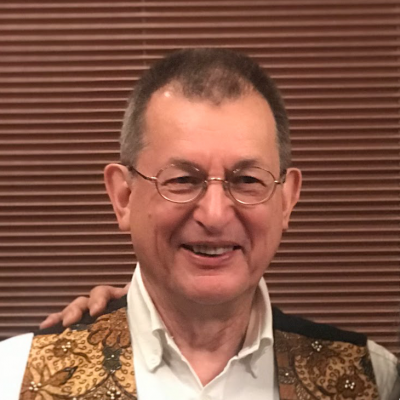Sessions / Location Name: F23
Physical Location
Location: F23
Building: Miwa Campus Building < The University of Nagano
Perspectives on how to support learners with special educational needs #2710
While accommodation for students with special educational needs (SEN) is built into mainstream education and teacher training courses, and considerable research has been carried out regarding SEN students' language learning, much less attention is given to the professional development of language teachers who seek to provide inclusive and adaptive learning environments for SEN students. This presentation reports on a case study carried out among five instructors who taught students with SEN in an academic discussion course at a Japanese university. These teachers were considered representative of university-level language teaching practitioners in terms of qualifications, experience, and teacher education, including a lack of official training regarding working with SEN learners. The study used reflexive writing by the teachers to uncover a set of developing perspectives on, and diverse approaches to, supporting SEN students. The results reveal two areas that are potentially instructive for both teachers and academic managers of professional development programs. First, they give some insight into the extent to which pre-service training programs are currently preparing teachers to help learners with special educational needs. Second, they outline a variety of ways in which teachers can proactively adjust their practice in order to better create equitable and inclusive classrooms.
Teacher Perceptions of ADHD and ASD in the Japanese EFL Classroom #2698
Autism spectrum disorder (ASD) and attention-deficit/hyperactivity disorder (ADHD) are two frequently diagnosed learning differences which can seriously influence students’ L2 development. Although Japan has diagnosis rates comparable to other developed countries (NISE, 2016), teachers often lack training for these conditions. This is particularly true for EFL instructors, who are not necessarily trained or informed of learning differences. In Japan, reporting and communication of these conditions is generally scarce, yet MEXT maintains a policy of inclusion at all levels of education. Therefore, a clearer picture of the challenges facing EFL teachers is one step toward ensuring classroom praxis can meet the promise of inclusivity. A survey of EFL teachers in Japan was conducted to better understand issues around learning differences as ADHD and ASD in their classroom. The survey had three goals: to chart themes in EFL teachers’ perceptions of learners with ADHD and ASD; to chart adequacy of EFL teachers’ knowledge and training for learning differences; and to identify potential areas of need for better understanding how to make the EFL classroom more accessible. This presentation will present the results of the survey and a set of practical takeaways which EFL teachers might consider in furnishing accessibility in the classroom.
Student perceptions of disability at a Japanese University #2960
For this study, three researchers attempted to ascertain students’ perceptions of disabilities at their university. Using a Google Forms survey researchers received 60 responses and analyzed the data to look for patterns. The researchers were specifically interested in what students considered to be a disability. By learning about perceptions of students at the university, the researchers hoped to achieve specific goals:
To measure the students’ colloquial understanding of disability in order to better realize the informal social milieu that students with disabilities are entering as they attend the researchers’ university. It is hoped that this survey will be used in the future with the same students, so that the researchers can measure what students learn about this topic during their time at the university and how their perceptions of those with disabilities evolve.
Researchers hope to apply tools and techniques of this research towards better understanding students’ attitudes towards disability in other Japanese universities, as well.
Additionally, by learning what students think, the researchers look forward to creating tools and resources for better serving and understanding disabled students.
This presentation will briefly explain research methods and highlight some of the results and effects they’ve had on the university, so far.
Pragmatic Markers Used in Textbook Dialogues #2703
Pragmatic markers play an important role in terms of speech coherence and maintaining interlocutor relationship and frequently occur in dialogues in ELT materials (Archer et al, 2012). However, most of them are not explicitly introduced or practised. Therefore, learners often end up not knowing how to use them in authentic interactions in their target language. This study looks at pragmatic markers appearing in the dialogues presented in beginner-level international ELT textbooks and Japanese high school ELT textbooks. The data analysed are types of pragmatic markers occurring in each dialogue and the functions of those based on Brinton's (1996) classification system, including textual functions and interpersonal functions. The analysis reveals 1) the range of pragmatic markers and functions in each type of above mentioned selected ELT textbooks; 2) how un/evenly they are distributed across these textbooks and 3) whether or not the relevant linguistic information for the use of pragmatic markers is provided. At the same time, characteristics of presenting pragmatic markers in ELT pedagogical materials and common weakness are discussed. In the end, some practical suggestions are made as to how teachers might supplement these materials and compensate for their insufficiency.
Orchestrate or Pontificate #3292
Many of us teachers get easily sucked into a "Chalk & Talk" style of teaching in our oral communication classes. It is essential to give your students the opportunity and space to develop their oral communication skills. By doing this your students will actually want to come to class. This workshop will present a bundle of ideas to help you hand over to your students so that you may stand back and observe their progress.
Why Do You Talk Like That? #2818
A common feedback teachers receive from students is how they struggle to use English in the real world, even after a long period of learning. In short, the English we teachers teach them in class is often not the English we ourselves use - we often don't use full sentences, our daily grammar is basic and we tend to keep our words short and to the point. Once a student gets into the habit of thinking and talking like a textbook or a listening exam CD, the fossilisation is hard to break. This presentation will highlight several areas of ordinary classroom-style English and how they are problematic or even damaging when compared to their real-life English equivalent. The presenter will then propose some simple cognitive processes teachers could use to stop themselves sounding so unnatural and ways to adapt textbook materials, before discussing the paradox of "more means better". Attendees will have a chance to look at lesson plans and textbook extracts so they can think about and discuss how they might be adapted. The speaker hopes to share something of use to all teachers, especially those who teacher young or lower-level learners.









